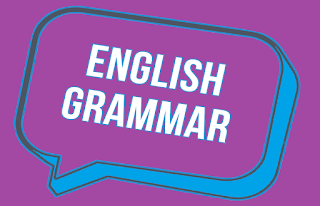Can I / we ……/ Could I / we …… / May I / we……. / Might I / we ……?
Karşımızdaki kişi yada kişilerden izin almak için bu yapılar kullanılır. Bu dört kipten "can" samimi ortamlarda, diğer üç kip daha çok resmi ortamlarda kullanılır. Ayrıca, "could" ve ''might" cevabın ne olacağı hakkında emin olunmadığı durumlarda kullanılır.
Bu yapı “edilgen” (passive) yapıda kullanıldığında "......yapmana izin verilir" anlamına gelmektedir. "permit"(izin vermek) ve "let"(izin vermek) fiilleri ile aynı anlama gelmektedir. "allow" ve "permit" fiilleri hem "etken” (active) hem de “edilgen “ (passive) yapıda kullanılabilmelerine karşın, "let" fiili sadece “etken”(active) yapıda kullanılabilir.
Karşımızdaki kişi yada kişilerden izin almak için bu yapılar kullanılır. Bu dört kipten "can" samimi ortamlarda, diğer üç kip daha çok resmi ortamlarda kullanılır. Ayrıca, "could" ve ''might" cevabın ne olacağı hakkında emin olunmadığı durumlarda kullanılır.
- Can I have a look at your holiday photos, when you have finished with it?
- Can I dye my hair red, please mum?
- Can I go to cinema with my friends this evening?
- Could I trouble you for a moment, madam?
- Could I ask you something, if you're not too busy?
- Could I take the car for a test drive?
- May / Might I borrow box of tools for today Mr Smith.
- Might I spend the night on your sofa in the living room?
- A - Might I (possibly) trouble you for your light?
- B - Sure, here you are.
- A - can I have another glass of wine?
- B - Certainly / sure / of course
- A - Might we stop work a little earlier tonight?
- B - Yes, you may (cevap verirken “might” kullanılmaz.)
- A - May I offer you a suggestion which could solve both your problems?
- B - Sure go ahead.
- Can Tommy borrow your car today? He wants to take out his girlfriend for dinner.
- Mike is my best friend at school. May he stay here over the holiday, daddy?
- Could my mother use your telephone for an urgent call?
- Could the children watch TV until seven o’clock when I was young ?
Bu yapı “edilgen” (passive) yapıda kullanıldığında "......yapmana izin verilir" anlamına gelmektedir. "permit"(izin vermek) ve "let"(izin vermek) fiilleri ile aynı anlama gelmektedir. "allow" ve "permit" fiilleri hem "etken” (active) hem de “edilgen “ (passive) yapıda kullanılabilmelerine karşın, "let" fiili sadece “etken”(active) yapıda kullanılabilir.
- Our teacher doesn’t allow / permit us to eat anything in the classroom.(active)
- We aren’t allowed / permitted to eat anything at the classroom(passive)
- Our teacher doesn’t let us eat anything in the classroom.
- Students are allowed to listen to music in the lecture hall.
- My sister isn’t allowed to go out at nights, but I am allowed.
- The school managment do not allow smoking in the lecture hall.
- The school managment do not allow students to smoke in the lecture hall.

